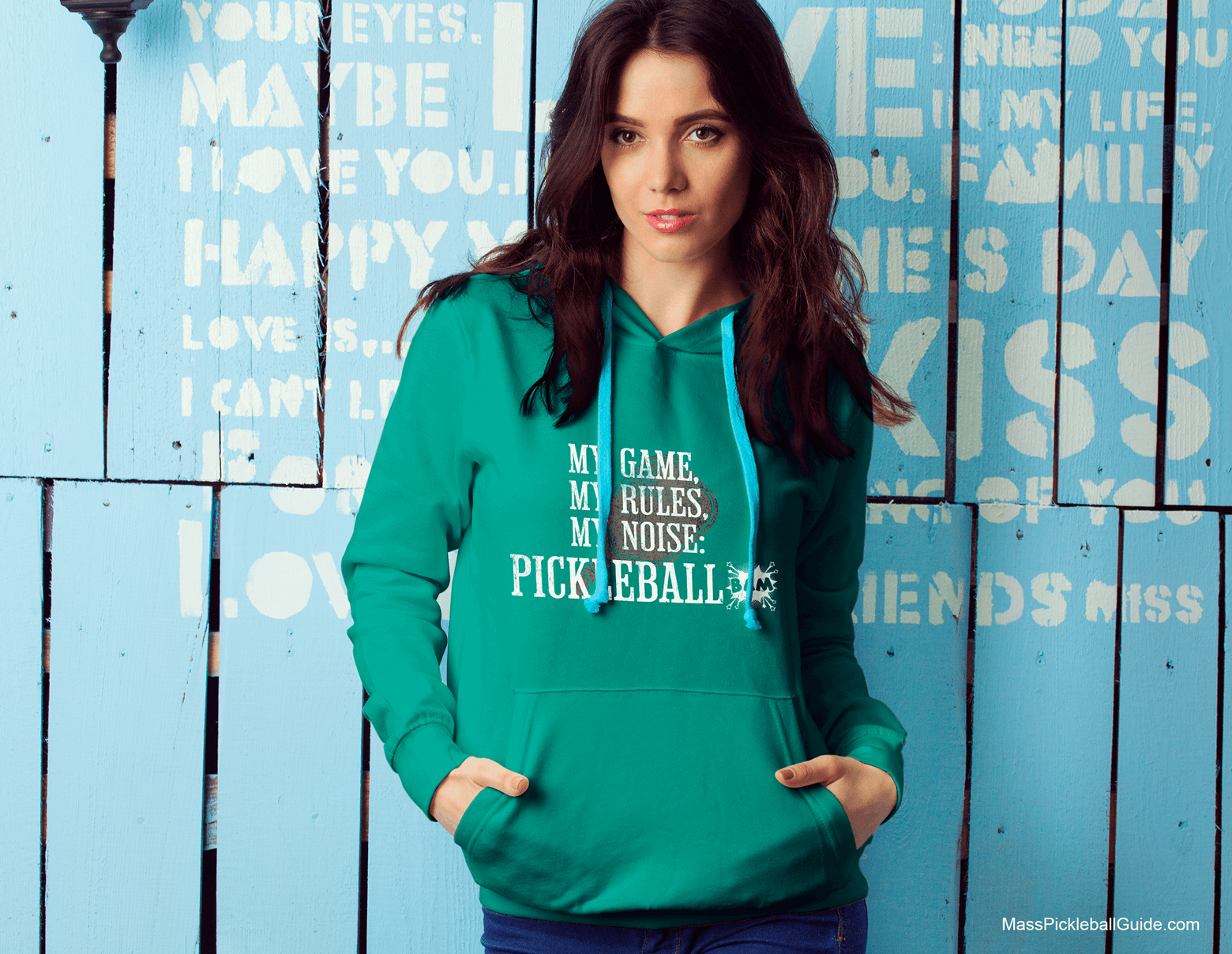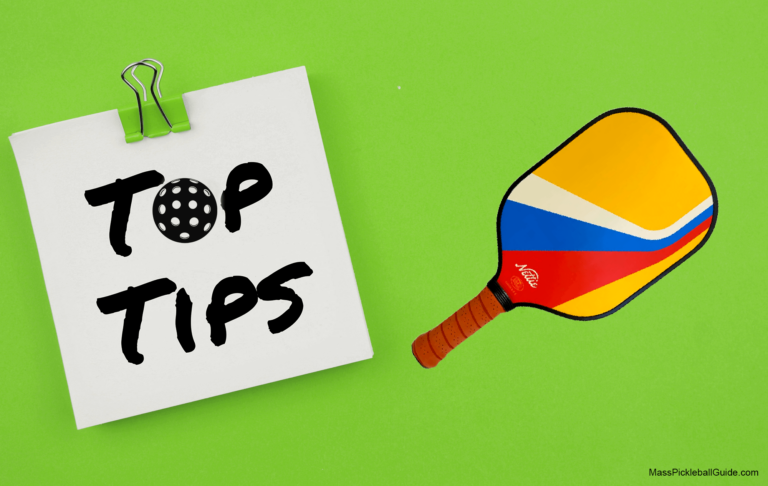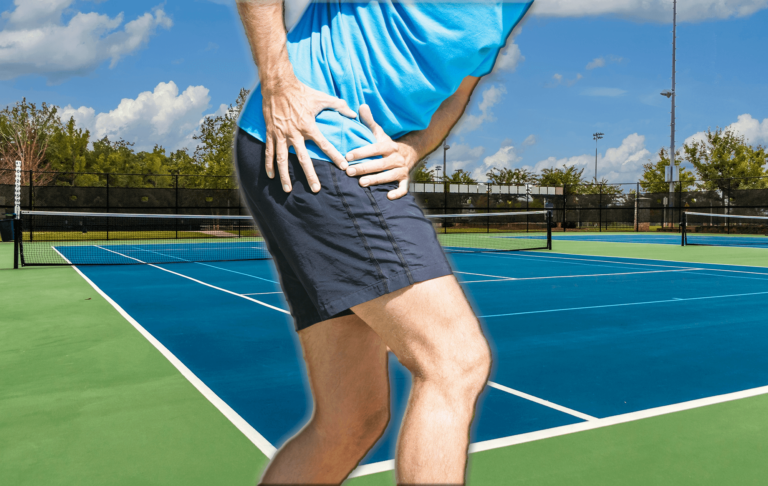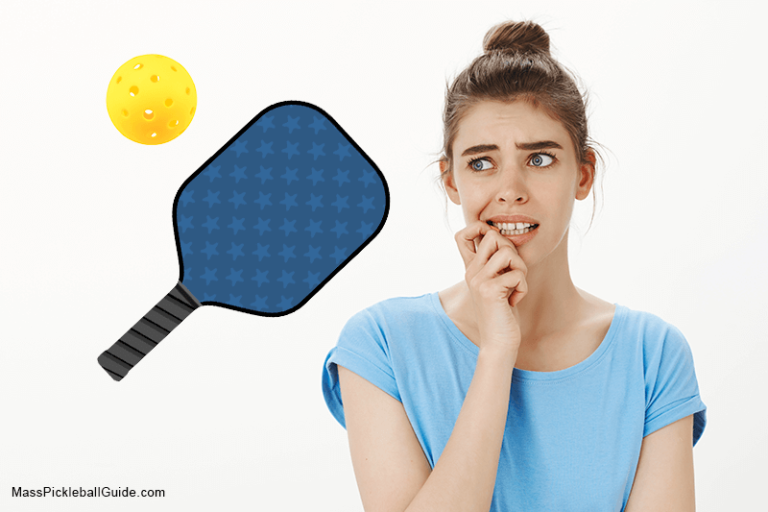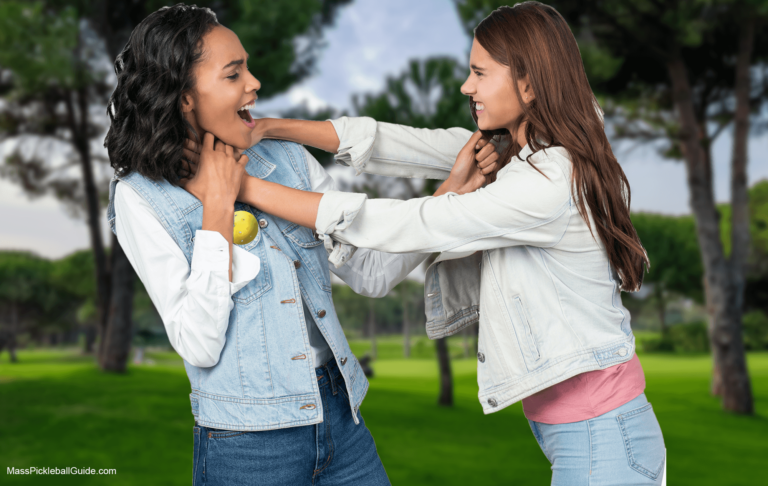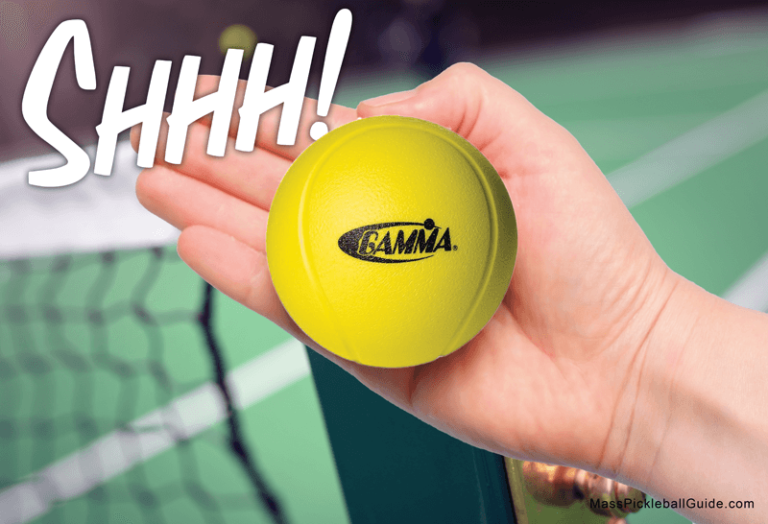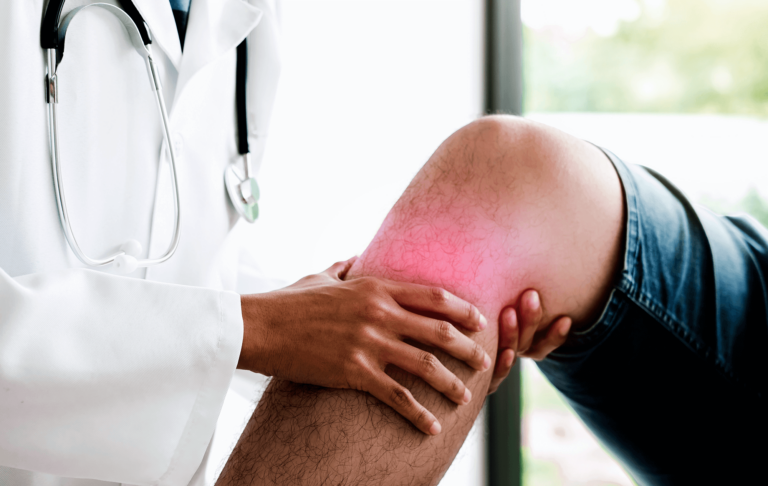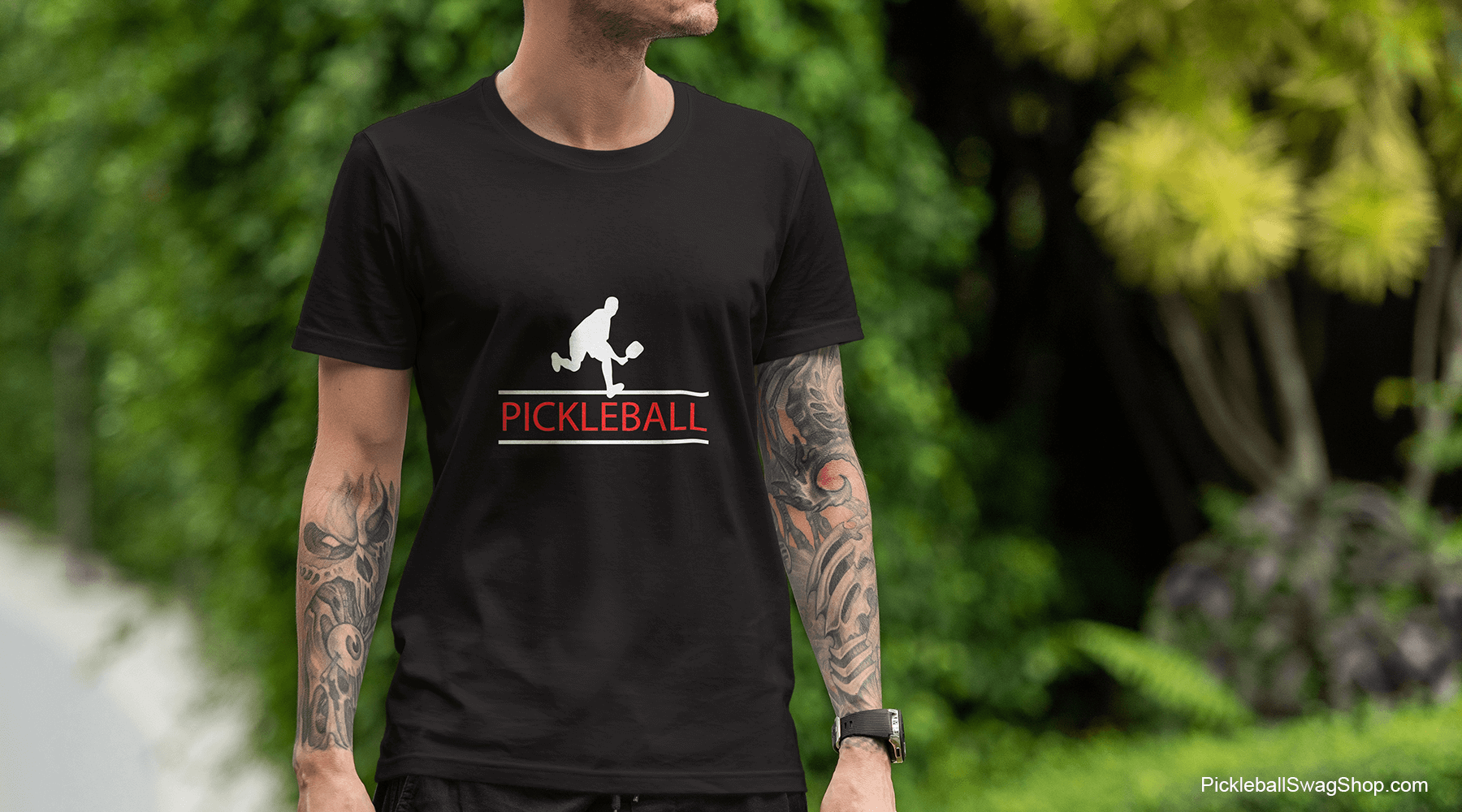The impact of pickleball noise on communities: understanding the issue
Is there really a solution?
Discover the latest trends and innovative solutions in the world of pickleball as we delve into the noise impact of this rapidly growing sport in 2024. With pickleball’s popularity soaring, communities are facing a new challenge: managing the distinctive sounds of the game. From the sharp pop of paddles to the enthusiastic cheers of players, learn how players and neighborhoods are adapting to this auditory aspect of pickleball.
More and more folks are complaining about the effects of pickleball noise as the sport becomes more popular – especially in areas where pickleball is relatively new. Think the northeast where the pickleball wave is just catching on.
Pickleball noise problems are more commonly found in areas where pickleball is relatively new. In other words, where people are unaware of its existence and how it is played.
Other than seeing the tremendous press pickleball gets, people are unaware of pickleball until it shows up in their backyard (literally) or in their town. It looks cute and fun from TV and social media clips but once they see live and in person some people immediately so “no, not in my backyard, we hate the noise”.
Here’s the bottom line…
Most of the pickleball “noise problem” is common sense… you don’t need to hire an expensive sound engineer to walk around the court and tell you to plant a couple of bushes. And don’t believe the so-called hysteria about how folks are going nuts. There’s actual ways to mitigate the level of noise in 2024 – but it will never be eliminated altogether. And that’s a fact [Jack].
How bad is the pickleball noise?
The noise caused by continuous pop-pop of the pickleball paddle hitting the ball leaves people disgusted, disturbed and distraught.
It gets worse.
There’s also a subset of the complainers that are even unhappy with the “people noise”. We tend to think that pickleball is more fun and easier to learn than tennis and that means it brings in a different crowd and will continue to do so in 2024. Pickleball players are having fun and love the social aspect of the game and want to show it by cheering each other on and celebrating after a contentious game.
Well, neighbors and onlookers don’t like the post game celebrating and think that, too, is just too noisy for them and this should be banned also.
Yes, folks it isn’t good.
Throw in the fact that pickleball courts are being put on tennis courts and now the problem has quadrupled. You can fit four pickleball courts on one tennis court and now you have, theoretically for doubles, as many as 16 pickleball players vs. 4 tennis players with a pickleball noise level that’s marginally higher than tennis.
This gives them more ammunition to voice their opinion (and their town vote) to void these pickleball newcomers in the community – and you know that? They are winning.
So please – don’t ever say we didn’t warn you.
Why is pickleball so noisy?
Pickleball is a noisy game due to the hard plastic balls and the hollow construction of [most] pickleball paddles. When the ball is hit, it produces a loud popping sound that can be heard from a distance. And, when the ball hits the court surface, it can produce a loud thud. The noise can seem even louder on indoor pickleball courts, where the sound can reverberate and echo.
The impact of noise on the game experience is not insignificant (double negative?). The loud noise can even be distracting to players and it can be difficult to hear important calls or communicate with other players. In addition, some pickleball facilities have noise restrictions that must be followed, and excessive noise can result in complaints and even violence from neighbors.
Sport Your Spirit: Pickleball Noise Apparel
Embrace the lighter side of pickleball with our whimsical t-shirt collection, specifically designed to humorously target the noise detractors of our beloved sport! Each shirt expresses the collective joy of the pickleball community, gently poking fun at those who find its characteristic sound bothersome.
Is pickleball noise different?
Yes, it is. Is it loud? Yes, it is. Can you still enjoy pickleball in your driveway or town courts? Of course, you can! You just need to know the facts and act accordingly.
If we can ignore the fun and social interaction of pickleball, the problem most people have with pickleball noise is the paddle hitting the pickleball.
Pickleball noise studies have been done to determine the sound level associated with pickleball games.
Here’s what happened…
Pickleball noise in decibels
The average pickleball sound, whether indoor or outdoor pickleball, is about 70 dBA. As a point of reference, any noise or sound greater than 80 dBA should try to be avoided and a dBA of greater than 90 can be harmful.
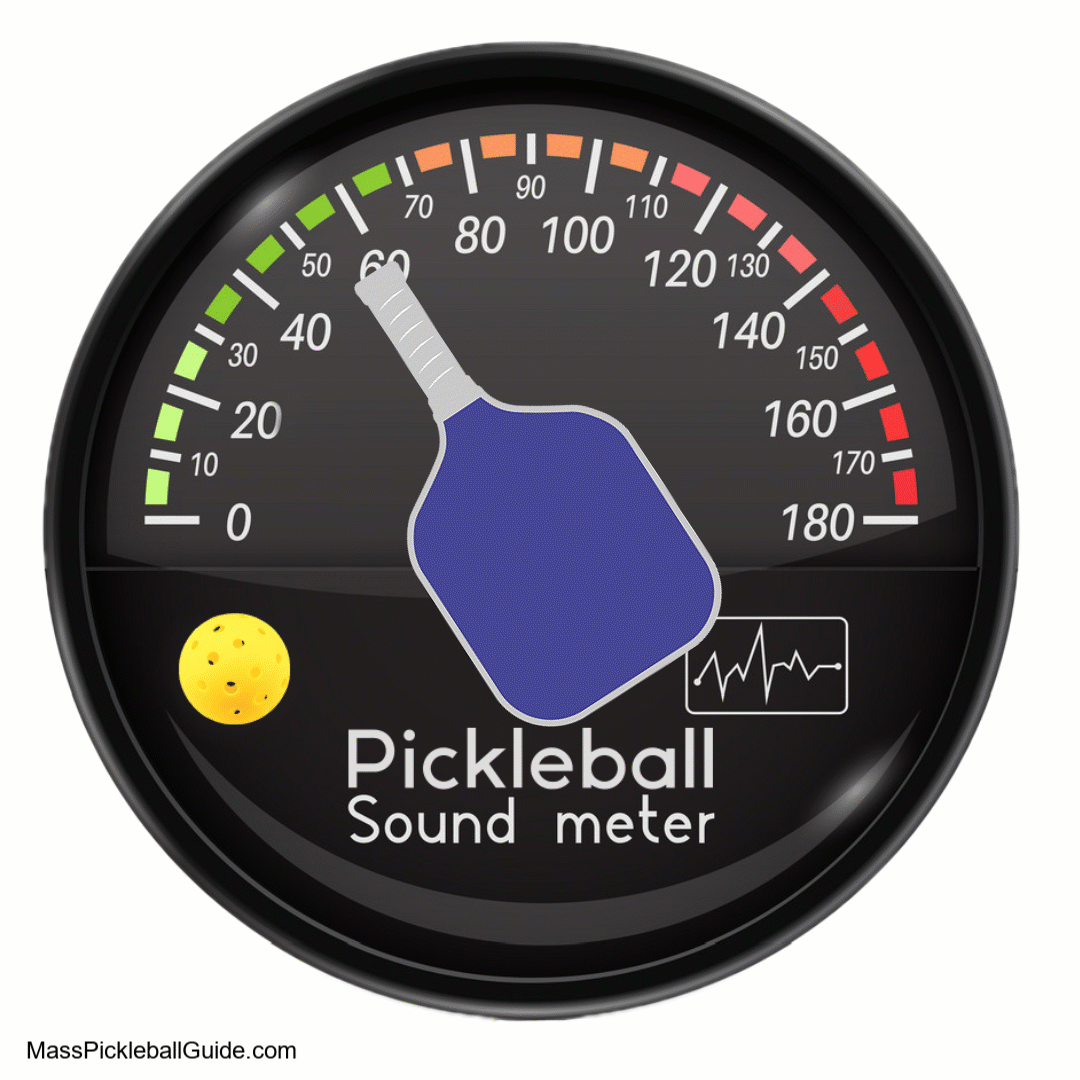
[dBA is an A-weighted decibel which is an expression of the relative loudness of sounds as perceived by the human ear. A-weighting is the standard for determining hearing damage. Source: TechTarget]
Even though pickleball averages 70 dBA (about the background noise of a Dunkins), this is still too much for some folks – or it just gives them something to hang their hat on. They may argue that any noise level from pickleball may be a nuisance. And, yes, we will admit pickleball noise is unique and can get in our heads as we’re lying awake in bed, but it does not make too many people say they want to quit pickleball altogether.
But the fact remains that while the paddle hitting the ball (and the ball bouncing off the court) averages 70 dBA it is still greater than tennis’s average 40 dBA. The facts are the facts and even in 2024 we cannot argue against them…you can, but we’re not.
Pickleball noise vs. tennis noise
Pickleball can be noisier than tennis due to its size, with more pickleball players fitting on several courts vs. one big tennis court. In pickleball there are many more rallies and opportunities to hit the ball and a faster pace than tennis – this adds to the noise level for sure.
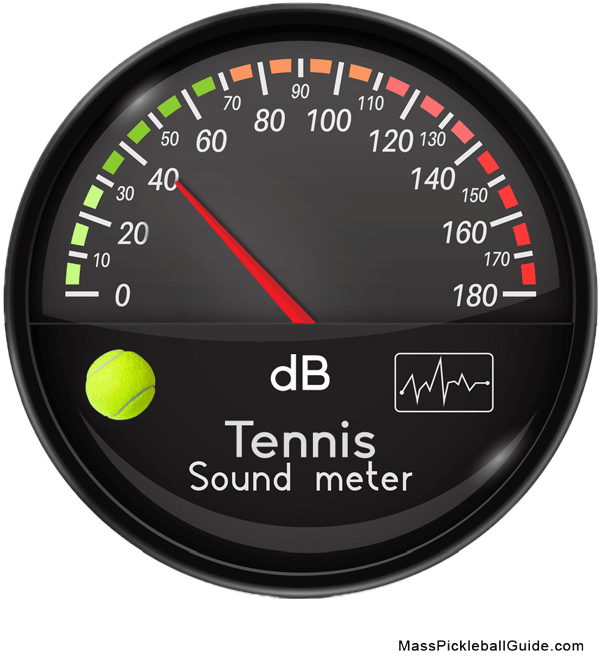
Furthermore, because pickleball is more of a social sport than tennis, the games tend to be louder with players jeering and during the game and certainly afterwards. When’s the last time you saw a couple of tennis players hang around after a game and have a couple of libations?
Potential pickleball noise solutions
Pickleball noise complaints are not going away any time soon, though there are things you can do to help mitigate it.
But there has to be a happy compromise in order for the number of pickleball courts to expand in order to meet the surging demand – otherwise picklers are going to build their own driveway pickleball court, which leads to issues in itself.
Pickleball is not a fad or trend that is going away: we need to find solutions to the noise without hindering the fun and excitement of the game. No “quiet category” of pickleball equipment will solve the issue, either short term or long.
One solution to pickleball noise is the use of acoustic fences and screens around playing areas such as the pickleball perimeter. This can help reduce the sound of the game significantly.
Additionally, quieter pickleball paddles and foam pickleballs are available to reduce noise even further without sacrificing performance. These materials can absorb more sound than traditional paddles and balls, greatly reducing the overall noise level of your pickleball game.
BTW – do not hire an expensive pickleball sound engineer to mitigate the sound.

